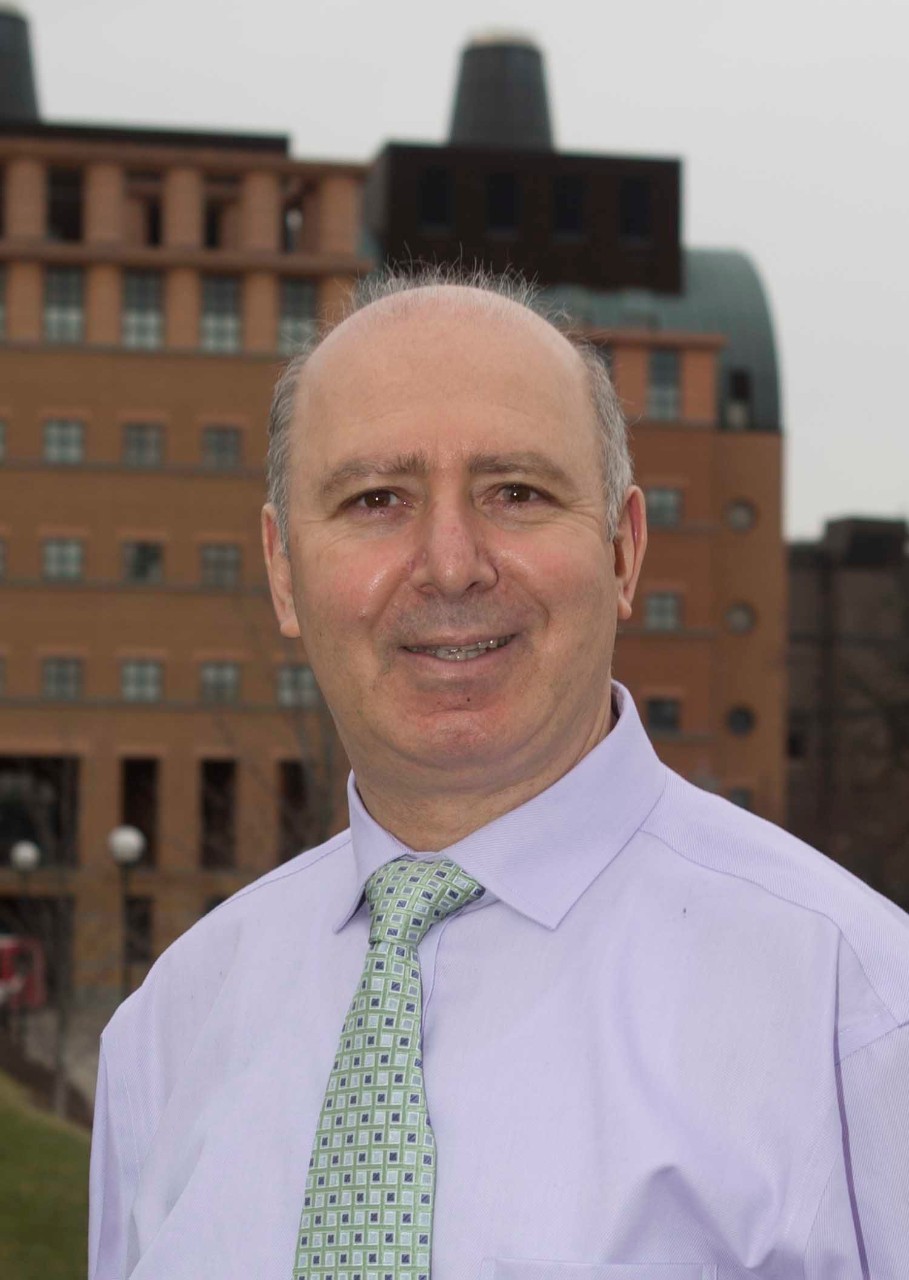
Engineering professor named highly cited researcher
Third consecutive honor for researcher whose work centers on water treatment

Dionysios Dionysiou
Dionysios (Dion) Dionysiou, Ph.D., professor of environmental engineering at the University of Cincinnati, was named a Highly Cited Researcher in 2020 by Clarivate Web of Science for his work addressing water pollution, conservation and treatment.
The honor identifies scientists who have demonstrated influential research work that is reflected in the publication of multiple, frequently cited papers that rank in the top 1% by citations for the year. Dionysiou was awarded in two categories in 2020: environment and ecology, and engineering. He also made the list in the engineering category in 2019 and 2018.
Dionysiou works with advanced oxidation processes and nanotechnologies, developing sensors and membranes to identify and treat pollutants in water. He runs the Sustainable Solutions Laboratory in UC’s College of Engineering and Applied Science.
Dionysiou is the editor of the Journal of Environmental Engineering. He was recently interviewed by the American Society of Civil Engineers Publications for an article about the journal and the future of environmental engineering. In the “Meet the Editor” article, Dionysiou said he would like to see additional research and article submissions for the journal on significant topics including: water quality impact from harmful algal blooms; methods to remove difficult contaminants such as PFAS, the “forever chemical”; technologies that address water scarcity in arid regions and treatment of non-traditional source water; approaches to control greenhouse gases and their effects on climate change; and sustainable methods to recover and reuse resources.
Read more about the journal and Dionysiou’s advice for new researchers in the field.
This National Science Foundation video features UC research led by Dionysios Dionysiou that addresses the importance of detecting toxins from cyanobacteria algal blooms, which are formed mainly by agricultural runoff. UC engineers and chemists collaborated to develop a biosensor to detect toxins and surface water. Read more here.
Featured image of water at top: Photo/Linus Nylund/Unsplash.
Related Stories
UC engineer applying generative AI to smart manufacturing
March 31, 2025
Manish Raj Aryal, a PhD student in mechanical engineering at the University of Cincinnati, is working on revolutionizing manufacturing systems through generative AI, leveraging AI systems to develop manufacturing assistant chatbots. He came to UC for his master's degree and continued researching as a PhD student. He was named Graduate Student Engineer of the Month by the College of Engineering and Applied Science (CEAS).
Exploring careers in robotics engineering: A path to the future
March 28, 2025
Discover robotics engineering careers: skills, paths, and opportunities in manufacturing, healthcare, and space. Explore salaries and how to start at UC’s CEAS.
Mechanical engineering student helps send science to the moon...
March 28, 2025
UC student Ilyas Malik aids Firefly's lunar mission for NASA's CLPS. Explore his journey, UC's co-op impact, and aerospace insights. Discover how education transforms career paths in space exploration.
